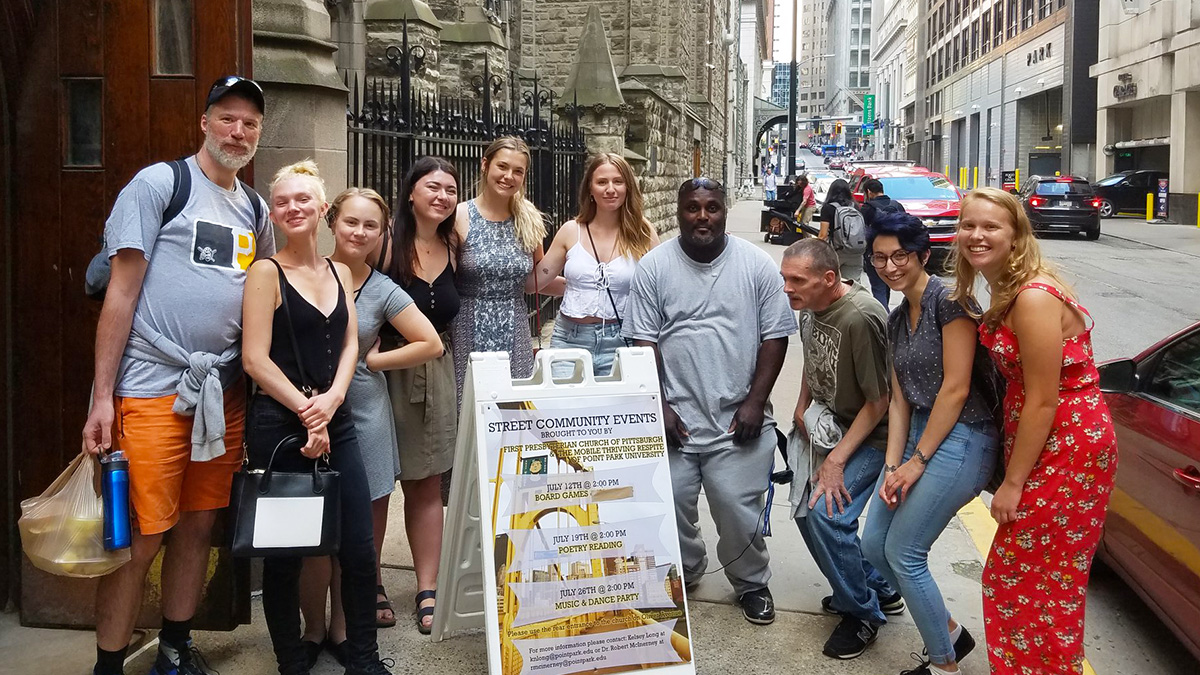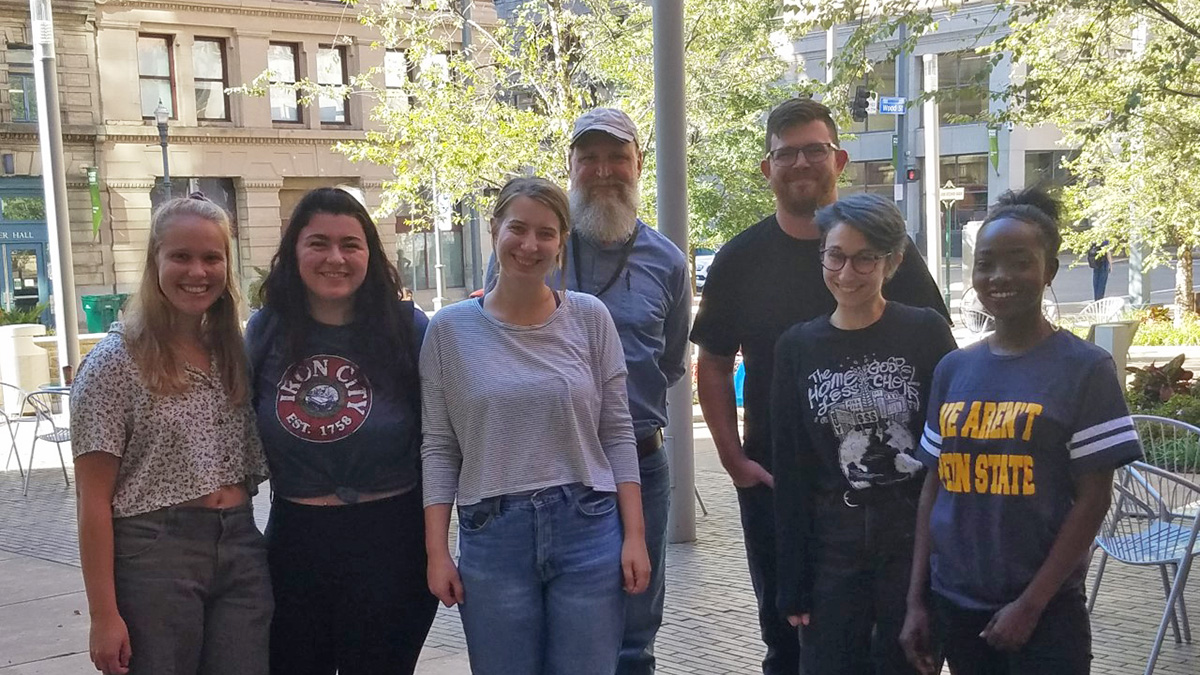Surviving to Thriving: Psychology Students Helping to Improve Lives of Street Community Members Tuesday, October 29, 2019
For the past five years, Point Park University graduate students in the Master of Arts in Community Psychology program have been working with Professor of Psychology Robert McInerney, Ph.D., as advocate ethnographers, gathering data about peoples’ lived experiences who are part of the street community through their internships with Pittsburgh Mercy's Operation Safety Net® and Bridge to the Mountains.
"This data, which included field notes and interviews, revealed the need for these individuals to go beyond just surviving the streets (i.e., coats, blankets, medical attention, food, etc.) to thriving," McInerney said.
As a result, Mobile Thriving Respite was created by McInerney and Point Park graduate and undergraduate students in the Department of Psychology to recognize and affirm the assets people have, and to offer cultural, educational and psychological resources.
Students set up events such as music and movie nights, art projects, body movement therapy, poetry reading, game playing and karaoke.
"My experience with Mobile Thriving Respite has been fantastic! We had several regulars who came to almost every event. The sense of community that was formed within the space at times felt magical. One of my favorite moments was when we all sang 'Don't Stop Believing' together on karaoke. I'm not sure our voices were beautiful, but the moment was for me," explained Cassidy Haid, a sophomore psychology major concentrating in child psychology, from Chartiers Valley High School in Bridgeville, Pa.
Sophomore psychology student Elise Tate also served as a key member of Mobile Thriving Respite.
"Working with Mobile Thriving Respite has provided me with life lessons that I will take with me. What's been most memorable is to see and remember faces of the people we worked with Downtown. At first, I thought that we were helping them, but in the end, I feel that they helped me," said Tate, who graduated from DuBois Area High School in DuBois, Pa.
According to McInerney, the Respite regularly offers opportunities to relax and de-stress, socialize in a safe environment and to access one’s creativity and dignity.
M.A. in community psychology graduate student Kelsey Long serves as director of the Respite's activities, which take place in Pittsburgh at First Presbyterian Church, First Lutheran Church and the winter shelter on Smithfield Street.
"The Thriving Respite is a great chance to meet and develop relationships within the community. I hope to see the Respite continue and grow in the future, and hopefully we gain the ability to have our own space, perhaps be truly mobile and expand our events and venues," Long said.
Charlee Bruce, also an M.A. in community psychology graduate student, added: "The aim of the Respite is to offer a space for people to come and be together, whether it is watching a film, playing a board game, making art or any other enjoyable activity that people do together. I think we succeeded in fostering an environment in which this can happen, finding some regulars who came by, along with people who just stopped in once or twice. Through the Respite, I’ve had the opportunity to meet some really spectacular folks who I am happy to keep spending time with on Fridays at the Respite. As such, it would awesome to continue to see it grow and improve."
Among the many organizations in partnership with Point Park's Mobile Thriving Respite are Allies for health + wellbeing, Allegheny County Department of Human Services, Storyburgh and the Pittsburgh Mayor’s Office.



